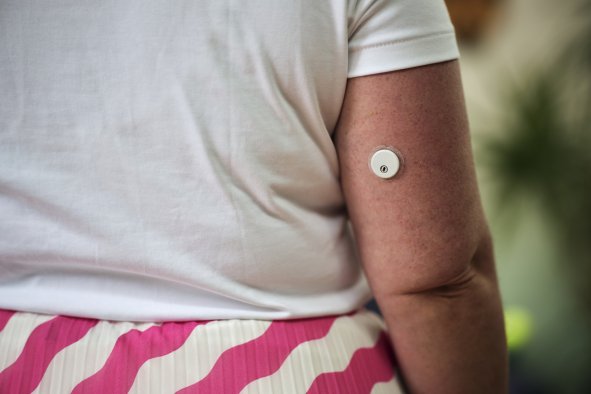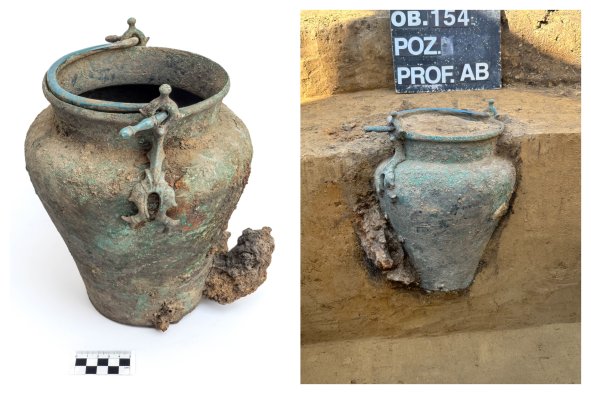Irritable bowel syndrome (IBS) sufferers who followed a low-sugar, low-starch diet for one month improved their gut symptoms and lost weight, according to a study, suggesting it could be as effective as a more restrictive regime.
The starch- and sucrose-reduced diet (SSRD) was compared by scientists at Lund University in Sweden against the current standard recommended diet for IBS: the low-FODMAP diet.
The results were "even better than we expected," according to Professor Bodil Ohlsson, a consultant at Skåne University Hospital, who led the study.
IBS affects an approximated 4 percent of the global population, according to the Rome Foundation Global Study, and is the most common gut disorder, where people experience a combination of symptoms that often include bloating, abdominal pain, diarrhea, constipation and gas.
Currently, the standard treatment is the low-FODMAP diet, generally considered to be quite restrictive. It involves cutting out foods that are high in fermentable carbohydrates, which could ferment and produce gas in the gut, leading to IBS symptoms.
In practice, this means avoiding foods containing lactose and gluten—such as milk, cheese, bread, cookies, pasta and pastries—as well as various fruits, vegetables and legumes.
SSRD, on the other hand, simply involves cutting back on sugary foods—such as cookies, candies, cakes, sodas and chocolate—and highly processed foods.
"We wouldn't really even call SSRD a diet," said Ohlsson. "It's how everyone should eat, not just those with IBS. And unlike low-FODMAP, SSRD is easy to understand and easier to follow.
"You can eat everything when you are invited to dinner, just less of certain things. If you rest your stomach for the rest of the week, you can indulge a little [for] one day."
Ohlsson and her team randomly allocated either a low-FODMAP or SSRD diet to 155 people with IBS who were not currently following a therapeutic diet.
After four weeks, 75 to 80 percent of individuals following either diet had significantly reduced their IBS symptoms—but the SSRD group also lost weight and reduced their sugar cravings.
And five months after the dieting period had come to an end, those in the SSRD group still had a lower weight than they had at the beginning of the study, and lower than those in the low-FODMAP group.
This was another positive result, Ohlsson said, because people with IBS tend to weigh more than the general population.
Those in the SSRD group who had previously tried a low-FODMAP diet also said that they preferred the new diet.
Ohlsson was inspired to undertake this research after geneticists discovered that IBS patients were particularly likely to have a rare genetic variation that hinders the breakdown of sugars and starches in the gut.
This genetic variation—enzymatic sucrase-isomaltase (SI) deficiency—could lead to dietary sugars remaining undigested by the body and fermenting in the colon, leading to digestive symptoms like those in IBS.
The treatment for SI deficiency is a reduction in starch and sucrose (sugar) intake, so, Ohlsson said: "'Let's try giving these patients less sugar and starch,' we thought."
Since both low-FODMAP and SSRD diets reduce carbohydrates—starch and sugar are forms of carbohydrate—to minimize fermentation in the gut, it may not be surprising that they seem to work in similar ways.
However, this research may come as a relief to IBS sufferers as it offers a potential alternative for managing their symptoms without cutting out significant portions of their diet.
Do you have a tip on a food story that Newsweek should be covering? Is there a nutrition concern that's worrying you? Let us know via science@newsweek.com. We can ask experts for advice, and your story could be featured in Newsweek.
References
Roth, B., Nseir, M., Jeppsson, H., D'Amato, M., Sundquist, K., & Ohlsson, B. (2024). A Starch- and Sucrose-Reduced Diet Has Similar Efficiency as Low FODMAP in IBS—A Randomized Non-Inferiority Study. Nutrients, 16(17). https://doi.org/10.3390/nu16173039
Sperber, A. D., Bangdiwala, S. I., Drossman, D. A., Ghoshal, U.C., Simren, M., Tack, J., Whitehead, W. E., Dumitrascu, D. L., Fang, X., Fukudo, S., Kellow, J., Okeke, E., Quigley, E. M. M., Schmulson, M., Whorwell, P., Archampong, T., Adibi, P., Andresen, V., Benninga, M. A., Bonaz, B., Bor, S., Bustos Fernandez, L., Chei Choi, S., Corassiari, E. S., Francisconi, C., Hani, A., Lazebnik, L., Yeh Lee, Y., Mulak, A., Rahman, M. M., Santos, J., Setshedi, M., Fahrial Syam, A., Vanner, S., Wong, R. K., Lopez-Colombo, A., Costa, V., Dickman, R., Kanazawa, M., Hassanzadeh Keshteli, A., Khatun, R., Maleki, I., Poitras, P., Pratap, N., Stefanyuka, O., Thomson, S., Zeevenhooven, J., Palsson, O. S. (2021). Worldwide Prevalence and Burden of Functional Gastrointestinal Disorders, Results of Rome Foundation Global Study, Gatroenterology 160(1). https://doi.org/10.1053/j.gastro.2020.04.014
Farzan Danialifar, T., Chumpitazi, B. P., Mehta, D. I., Di Lorenzo, C. (2024). Genetic and acquired sucrase-isomaltase deficiency: A clinical review, Journal of Pediatric Gastroenterology and Nutrition 78(4). https://doi.org/10.1002/jpn3.12151
Disclaimer: The copyright of this article belongs to the original author. Reposting this article is solely for the purpose of information dissemination and does not constitute any investment advice. If there is any infringement, please contact us immediately. We will make corrections or deletions as necessary. Thank you.



